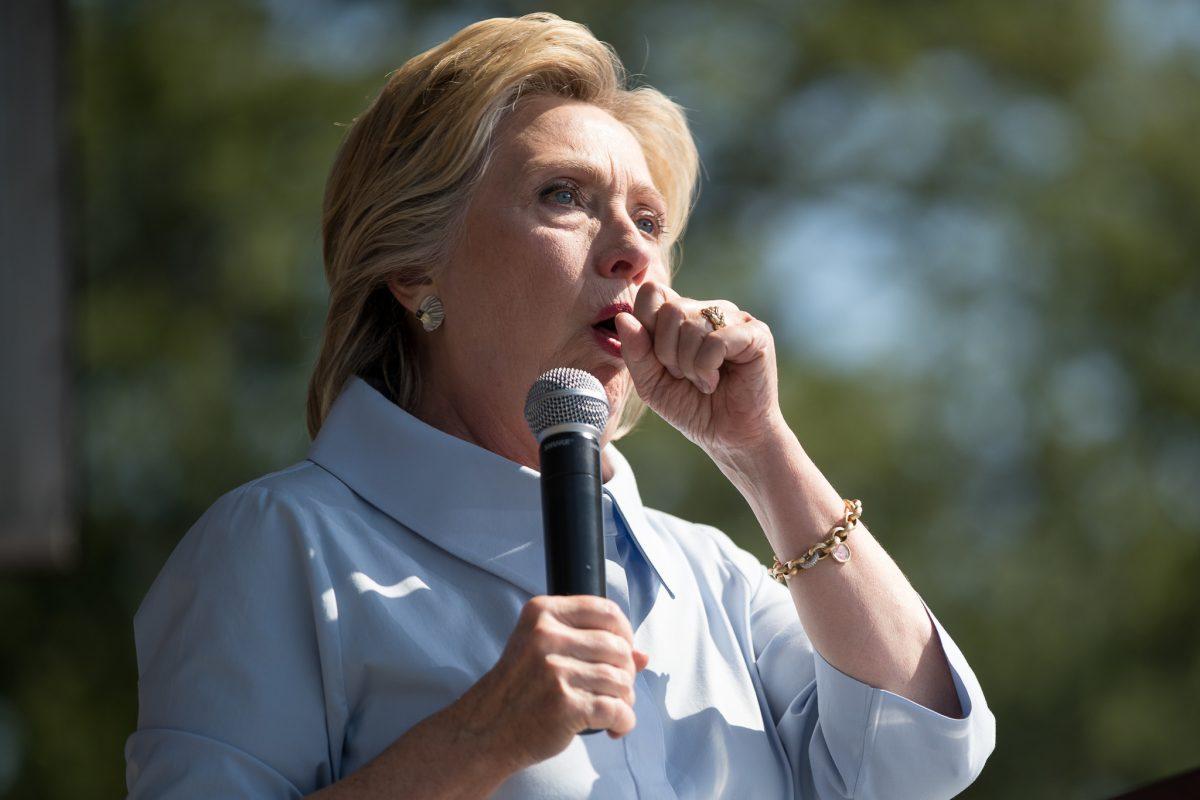At a memorial service for 9/11 last week, Hillary Clinton collapsed due to pneumonia, prompting a whirlwind of media coverage questioning her overall health. Many publications made broad generalizations and sexist insinuations that attempted to dissuade voters from supporting someone who lacks, as the Trump campaign stated, “strength and stamina.” As a result, experts in both medicine and political science have ushered in debate around the benefits and downfalls of publicizing candidate’s medical records during the election cycle. While the media will never present an objective portrait of such sensitive information, it is important that the public be aware of both nominees’ health.
Both Trump and Clinton, among the two oldest people to seek the Presidency in American history, have hesitated in distributing their medical records. Though some, such as Nichole Bauer, an Assistant Professor of Political Science at the University of Alabama, argue that once “a candidate’s health becomes a campaign issue, it becomes subject to spin and distortion,” others note that history has proven time and time again the importance of transparency when it comes to presidential health. Writing for The New York Times, author Rick Shenkman noted that “John F. Kennedy’s many ailments…contributed to his humiliation during negotiations with Soviet Leader Nikita Kruschev at Vienna. His doctor pumped him so full of drugs (including amphetamines) he probably couldn’t operate at a high level.” Others have cited Woodrow Wilson’s double strokes, Pakistani President Muhammad Ali Jinnah’s tuberculosis and even Ronald Reagan’s dementia as further examples of why available medical records are necessary. Had the people been privy to the ailments plaguing these political leaders, many of them would have been forced to resign, “undoubtedly to the benefit of the country,” Shenkman asserts. The health of the country’s leader is critical to that of its citizens, as when a leader falls ill, it can be demoralizing for both their cabinet and the country.
Therefore, it seems to be in the interest of voters that medical records be easily accessible. Cardiologist Haider Warriach states that while the disclosure of ailments like allergies seem to be of little consequence, psychiatric records can have major implications on presidential policy and should be considered during an election season. Indeed, mental instability may affect crucial decisions, and the nation as a whole would benefit from prior knowledge of such conditions. At the same time, such information may further stigmatize psychiatric illness in this country. As Sarah Gollust, Associate Professor of Public Health and Management at the University of Alabama, explains, “communicating the ‘unfitness’ of certain aspects of a candidate’s mental or physical health profile could send messages that those conditions or traits are undesirable, debilitating, or otherwise discrediting to the millions of Americans who may share those characteristics.” While true, the President’s office is privy to the most important and determining information and often makes critical decisions affecting the lives of others; likewise, voting in a candidate who suffers from mental illness can only exacerbate their condition.
At the same time, studies have shown that knowledge of candidates’ health does not majorly affect polling results. According to Washington Post, Clinton’s collapse during the 9/11 memorial “has done no political damage to speak of.” Voters remain more or less unchanged, despite her health issues. It seems that while the statistics were unchanged, only the media lens has been altered in a significant way. From both sides, publications have been attacking the campaign for their cover-up of her health issues, further feeding accusations of opacity and lies. It’s worth noting that Clinton’s condition of pneumonia is treatable and only minimally interferes with her capacity to lead.
However, we cannot expect the media to be objective. Discussions of Clinton’s health are mired in sexist language. Noting her weakness, Trump has argued that his opponent is “a mess, a total mess,” and that she lacks the endurance to take on major political issues. His commentary is rooted in centuries of patriarchal thinking: that is, women are the weaker sex. In citing Clinton’s strength and stamina, Washington Post columnist Ruth Marcus argued that Trump is referring to his opponent as “both a weak girl and a dried-up old crone.” For many years, this argument of feminine fragility was used to keep women out of the workforce, a form of occupational segregation. Even now, as a woman fights to hold a major national office, the same language has reappeared to further restrict her.
While we cannot reasonably expect the media to objectively cover the health of the presidential nominees, we as the general public will benefit from more transparency in this regard. At the same time, there is no room for sexist or biased statements, but knowledge of candidates’ medical issues will allow us to make more informed decisions during the election season.
Photo courtesy of Andrew Harnik/AP




